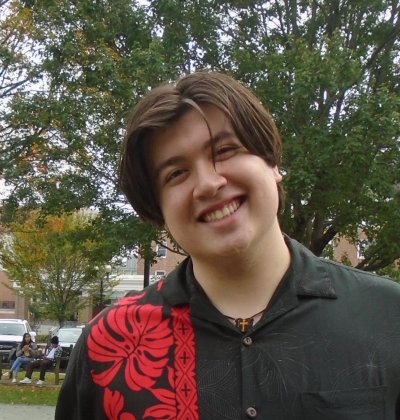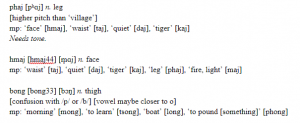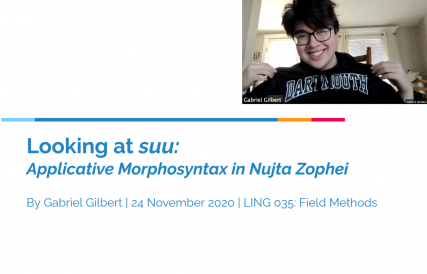
New Horizonsː Field Research, But Make It Virtual
Over the course of my first fall as a Dartmouth sophomore, I had the opportunity to take Linguistics 35 Field Methods as one of twelve students. During the course, my classmates and I had the opportunity to study the Zophei language, spoken in Myanmar and India. By the time of our taking the class, very little research had ever been done on the language, effectively giving my class the opportunity to perform some firsthand research, the likes of which usually requires actual field experiences.
Because of Dartmouth and the Linguistics department, we had the opportunity to do it all in a virtual environment — talk about new horizonsǃ
When you think of research, it's very easy to think of fancy labs and endless data tables full of numbers and other things that we associate with STEM. But research isn't just for the hard sciences, by any stretchː the social sciences have given me more opportunities to research than I'd ever have expected before my arrival at Dartmouth, and the Linguistics department especially has been so packed with opportunities that it almost seemed like incredible fortune to be able to perform the research under the guidance of a professor as part of a course curriculum. But that's normal at Dartmouthǃ You end up doing research almost accidentally, and in doing so simultaneously gain more than enough experience to brainstorm projects of your own while also meet important faculty members that are more than willing to provide the insight and experience you need to navigate what, exactly, research is.

The class began with us meeting our language consultant — a native speaker of the language who would serve as the source for all of the language data we gathered over the course of the term. We started figuring out the phonological inventory of the language — what kind of sounds did the language have? What was the word for dog or elephant or night in the language? Then we moved on to figuring out how to build small phrases, then bigger phrases, determining how the language's syntax, or grammatical structure worked. By the end of the term, each of the members of the class selected a topic they found most intriguing and created a presentation that we ended up presenting virtually as part of a workshop that Dartmouth hosted, inviting the entire Linguistics department, Linguistics majors, and even some world-experts on the language family we'd been studying in order to share what we'd figured out.
How often does classwork translate not only into real, substantive research covering entirely new academic ground, but also the presentation of research to some of the leading academics in the language family that we'd been studying? At this point in my academic career, Dartmouth has become almost synonymous with collaborative learning and cooperative research. My entire class would meet during class sessions to perform elicitation (also known as asking our expert what certain things mean and asking other more specific questions about the language), but then we'd also perform our own individual elicitation sessions in order to diversify our efforts and gain more data. We'd share all of this data with each other in order to combine our work, and all of us benefited as a result. We were all able to pursue our own independent projects within the class but never at each other's expense — can you imagine a more collaborative (virtual) space?
As I write this post while taking a break writing my final paper for the class, I feel inspired to pursue more linguistics research independently. This class definitely gave me the tools and experience I needed to feel empowered enough to actually go for it and hit the play button on projects I've been thinking about ever since linguistics as a field stole my heart and ran away with it. Again, my experience is just one of many — Dartmouth has a way of showing you how easy research is to be, and at this moment I feel even more confident about leaving post-undergraduate studies on the radar. If I didn't know I liked research before, I know now — and I'm a big fan.
I hope you're all keeping healthy and well, and I can't wait to report back with whatever other rabbit hole I end up falling (probably face-first) into during the rest of my sophomore year. A hui hou — until next timeǃ
















